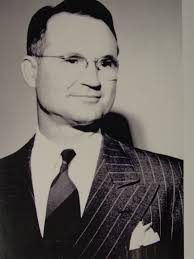Wednesday, November 4, 2009
Macbeth and Perry
Macbeth and In Cold Blood both relate the story of cold-blooded murders. After the murder Macbeth tells us that he has murdered sleep and Lady Macbeth warns her husband he will go mad if thinks too much about it. Do Macbeth and Perry react to the murders in the same way? How about Lady Macbeth and Dick? What do these two stories tell us about guilt, conscience and the workings of the human heart?
Subscribe to:
Post Comments (Atom)



Lady Macbeth and Dick share the same outlook on murder. They believe that their partners should not over think it as that will make them go mad. When Dick and Perry start their journey to Mexico Perry constantly finds the need to talk about what happened knowing full well that every time he does Dick is getting mad at him. Perry talks about he knows that they are going to get caught, "I had a high degree of 'extrasensory perception."(pg. 90) However, Dick constantly gets angry whenever Dick talks about the murders as he finds himself having to calm Perry down, "Get the bubbles out of your blood. We scored. It was perfect."(pg 90) In the same why Lady Macbeth constantly has to persuade Macbeth that he did the right thing thing and everything was going to be okay. The different stories both show the workings of the human conscience that causes Perry and Macbeth to feel guilty.
ReplyDeletei agree with kirsty, lady macbeth and dick share a similar outlook on murder and guilt. their partners are going crazy over this thought, of the murders. also the two have a control over the power of guilt. they don't feel guilt towards what they did. they have no real sense of guilt. they don't really feel bad for the things that they have done or things that have happened. they both are so casual. they also try to persuade the other to "cool off." the idea of the two being similar is true. they treat death the same.
ReplyDeleteIt seems as though Perry and Macbeth play the same role, and Dick and Lady Macbeth play the same role in these two different stories. As for Perry and Macbeth this seems to hold very true. Both murdered, and are now thinking about it and on the verge of going mad because of the guilt they feel for their actions. Both have killed innocent people in their sleep, that didn’t deserve to die as far as these two can tell. For Macbeth, Duncan is family, king and friend, an innocent man good at ruling his kingdom. To Perry, the Clutter’s are still an innocent family that didn’t really deserve to die. Macbeth and Perry both carry the weight of their guilt on their conscience.
ReplyDeleteDick and Lady Macbeth on the other hand my seem very similar and as though they play the same role, but a single trait very drastically sets them apart, that is a conscience. Dick has a conscience. Yes, he cold bloodedly murdered the Clutter family, but he still feels some remorse about what he has done, he feels guilt. Because of his anger and range that causes him to enjoy killing, he shows the very distinct characteristics of a psychopath. Lady Macbeth, however, does not have a conscience. She has no emotional connection to what she has done. No remorse, no guilt, she doesn’t seem to care in anyway that Duncan is dead. She only cares because it advances her cause to become more powerful and successful. Lady Macbeth is very clearly not a psychopath, but a sociopath. On the surface Dick and Lady Macbeth may seems to share the same role as Perry and Macbeth do, but the underlying traits they show about guilt drastically changes how similar they are.
When comparing In Cold Blood by Truman Capote, and Macbeth by Shakespeare, there are several obvious similarities. Dick and Perry, the murderers of the story, are the equivalent to Lady Macbeth and Macbeth. Dick is like Lady Macbeth because he takes a very masculine role in the story. As in most Shakespeare plays, there is a reversal of roles and although Lady Macbeth is a woman, she acts very masculine. She is strong and forceful and convinces Macbeth to kill the king. Perry is very feminine and is portrayed as more of a feminine character much like Macbeth. Lady Macbeth can also “wash off the blood” while Macbeth, even with the strength of the ocean, cannot. This is similar to Dick who is seen eating and living without regret. Perry cannot eat a thing and finds himself questioning, “How can we do something like this?” Perry believes that in order to perform this act of violence, something must be wrong with them. Dick yells at him to get over this much like Lady Macbeth who tells Macbeth not to think about the murder too much. I believe that these two stories illustrate that the human heart does not allow one to get away with murder. Both Dick and Perry are left feeling guilty after the murder, although Perry allows his guilt to show. Dick does feel guilty and this is illustrated when he yells at Perry because he is bringing up the murder. Obviously Dick wants to forget about the murder because he feels so bad about it and by bringing it up he is unable to do so. Macbeth and Lady Macbeth illustrate the same thing. Lady Macbeth wants Macbeth to forget about what happened so that they can both move on. By moving on, they will hopefully get rid of this guilt they are feeling. It doesn’t matter how tough someone is, everyone ends up feeling guilty about what they did. This does illustrate, however, that masculine figures try and hide their guilt while more feminine figures, such as Macbeth and Perry, can’t hide their guilt inside. They are “too weak” to deal with it and they express it.
ReplyDeleteMacbeth and In Cold Blood are more related then one would think. Both consist of cold-blooded murderers, death, and guilt. Macbeth and Perry both react them same to the murders, each one feels the guilt. Perry consistently looks for papers about the murder to assure Dewey has no lead on the case. On the other hand Macbeth consistently talks about killing Duncan, he is very nervous and knows guilt is on his shoulders. Lady Macbeth and Dick are both similar, however they both have their differences. Lady Macbeth is a born killer; she knows how to kill, how to get over it, and how to avoid getting caught. Dick is new to killing; he even states that he was surprised he could go through with this kill. They are similar in the way that they wanted to kill and they went through with it, also each does not feel the guilt like Macbeth and Perry. Macbeth and In Cold Blood illustrate guilt in two different ways, it explains why people murder and why people do not, and lastly the ways different people could murder. First, Macbeth demonstrates guilt in an open way, Macbeth comes straight out with his guilt immediately after the killing. In Cold Blood shows that guilt is gradually coming, it comes two days after they kill the Clutters. Secondly, Lady Macbeth killed out of material gain, she wanted Macbeth to become king, while Dick murdered for an unknown reason. Capote tries to keep it a secret on why they murder the clutters, while Shakespeare explain in great detail why Lady Macbeth and Macbeth murder Duncan. It is obvious that both Macbeth and In Cold Blood are closely related, but when you look deep down each story has little differences.
ReplyDeleteDespite the obvious differences between In Cold Blood and Macbeth, there is one similarity that is so similar that it struck me as very odd. In In cold Blood, Perry and Dick kill the Clutter family. In Macbeth, Lady Macbeth and Macbeth are the culprits behind the murder of Duncan. The first similarity in these two cases of murder is that the person or people getting murdered are very highly regarded in both stories. The Clutters are looked up to by every family in town, while Duncan is the King, and by nature of being king you are looked up to. Despite this similarity, the similarity of the reactions of the murderers in the two different stories is astonishingly similar. Lady Macbeth and Dick are very similar in reaction while Macbeth and Perry are similar in this same aspect. Lady Macbeth and Dick believe that their partner’s should just stop thinking about it, as it will just lead to guilt. These two people have very little guilt, as they feel no remorse for the victims of their actions. On the other hand, Macbeth and Perry cannot stop thinking a out the murder, and after the murder, they are constantly burdened intense guilt.
ReplyDeleteThe two stories conncect on many levels. They both have many like concepts in terms of murder, guilt and character type. However, i feel that one very large difference is that we know what the motive for the murder in Macbeth was, and in In Cold Blood we are still guessing.
ReplyDeletePerry and Macbeth are alike in the way that they are both feeling a tremendous amount of guilt on their shoulders. Perry is constantly reminded of what a terrible thing he has done. He is hearing the voices of the people he murdered repeating in his head, he is constantly checking the news paper articles to ensure that detective Dewey has not picked up on any leads to the Clutter murder. Macbeth is similar because of the guitl he is baring. He is unable to get killing Duncan out of his mind, he can not stop himself from thinking about the blood on the daggers, on his hands, and what he has done. In both situations, Perry and Macbeth are nervous and confused as to why they murderd the people they did. In their eyes both the Clutter family and Duncan were good, acceptable people, who no one wanted to see dead. They were innocent people, who did not deserve this.
Lady Macbeth and Dick are similar in the way that they experience a feeling of very little guilt for what they did. They look back on the murders and feel almost no remorse. Both Lady Macbeth and Dick want their "partners in crime" do forget about what they did, and move on like nothing happened. While reading Macbeth it is quite apparent what a hearless person lady Macbeth turns out to be through various speaches she has. Dick also appears very cold hearted, even in minor parts of the story, for example, when he purposley hits the dog crossing the street. However, i feel that as the stories continue both characters will begin to show feelings of regreat.
This comment has been removed by the author.
ReplyDeleteThis comment has been removed by the author.
ReplyDeleteMacbeth and In Cold Blood both describe pairs of murderers who are willing to kill to achieve their goals. In both of these pairs, there is one person who creates most of the plans while the other person, willingly or not, follows. In Macbeth, Lady Macbeth is the mastermind of the schemes. She seems to be dragging Macbeth along during the book because he is incapable of doing things efficiently on his own. She has saved Macbeth from almost revealing their plans on numerous occasions. The same relationship exists between Dick and Perry in In Cold Blood. Although Dick and Perry are both murderers, Dick seems to be the leader of the team. He makes most of the decisions. Perry is willing to join Dick at first, but after a while, Perry reaches a point where he has no choice but to follow him. Dick and Lady Macbeth are both narcissistic. They are so intent on their goals that they forsake everything and everyone for what they desire. They also show no remorse for what they have done. Dick knows that he is risking getting the “Corner” for a “score” that only gives him fifty dollars. Even though Lady Macbeth is a woman, she places herself in a position where she is the dominant figure, which is against tradition. Perry and Macbeth are both willing to kill, but they require persuasion from their partners. They are reluctant, and eventually regret, the depths to which they have sunk to get what they want. Macbeth kills a member of his own family to become king. He also goes as far as to hire people to murder his best friend. Perry transforms from a boy with potential to a criminal. His only reason for continuing his exploits with Dick is because, as I stated earlier, it’s too late to back out now. These two susceptible characters would not be the people they become without the presence of Dick and Lady Macbeth. Perry and Macbeth rely on Dick and Lady Macbeth’s selfishness, lies, and lack of remorse to carry out their crimes. Dick and Lady Macbeth would still be malevolent without Perry and Macbeth. They lack a conscience of their own to tell them that they are wrong. Perry and Macbeth serve as weak opposing viewpoints that Dick and Lady Macbeth can easily manipulate to achieve their goals. Their wills are stronger that the wills of Perry and Macbeth. Eventually, the weaker characters obey the wills of the stronger characters because their desires are stronger than their unwillingness to follow their senses of right and wrong.
ReplyDelete